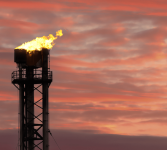We can’t ignore the problem of critical raw material supplies in the drive for UK energy independence – Inside track
5 min read
This article is the second in our ‘Critical raw materials in focus’ series, a collection of blogs spotlighting the management of critical raw materials in the UK.
Labour’s mission to make Britain a “clean energy superpower” is guided in large part, it says, by a desire to achieve “energy independence from dictators like Putin”. There is a strong moral foundation for this approach and it is of course a good move in the face of skyrocketing bills and the climate crisis.
But what does energy independence mean for a country like the UK which has very few geological reserves of the critical raw materials crucial for renewables and other economically important sectors? Labour’s pitch for energy independence has so far sidestepped this consideration, but that has to change.
The UK is 100 per cent reliant on imports of critical materials
As it stands, the UK imports nearly 100 per cent of each of the 24 materials considered to have ‘high’ or ‘elevated’ criticality, meaning those that are economically and strategically important and have supply chain risks. With the exception of tungsten, which has been mined in the UK in recent years and could be mined at greater scale soon, and lithium, where deposits in the south west could provide significant supply by the 2030s, UK reliance on imports of virgin materials is unlikely to change much.
So, in a renewables dominated future, we rightly won’t be importing fossil fuels from dictatorships, but we must still carefully consider where the materials needed for our energy system come from, as well as their social and environmental impacts. At the moment, it’s unlikely many materials imported to Western nations come from Russia as there are sanctions on their nickel, copper and aluminium. But Russia isn’t the only source that deserves scrutiny.
China dominates supply and processing: its mines provide over half – and as much as 90 per cent – of the world’s magnesium, tungsten, rare earth elements, silicon, graphite, vanadium, antimony, fluorite and tellurium. It has even greater dominance in processing resources, handling more than 90 per cent of global gallium and magnesium, and at least half of 12 or more other critical raw materials. Given the lack of scrutiny and responsibility in some of these supply chains, this is leading to real human and environmental costs. Anti-Slavery International has documented considerable harms, noting specifically that “the evidence is stark that UK critical mineral supply chains are currently heavily reliant on Uyghur forced labour, including due to the Chinese Government’s purposeful programmes to increasingly move mining, processing and manufacturing into the Uyghur region, and to concentrate global market sourcing in the region.”
China’s isn’t the only concern when it comes to the use of forced labour. Saudi Arabia also plans to invest $15 billion to secure minerals from countries including Namibia, Guinea and the Democratic Republic of Congo. It’s widely known that mines in some of these areas use forced labour, including child labour and environmental problems include devastating water and soil pollution. If levels of extraction carry on rising as fast as they are, it will become harder and harder to source responsibly.
We shouldn’t gain energy independence at the expense of poorer nations
A large proportion of critical raw materials used to support the decarbonisation of richer nations come from the global south which is rich in these resources: Chile mines half of the world’s rhenium; South Africa mines more than half of platinum and chromium; the Democratic Republic of Congo supplies nearly two thirds of cobalt (and we’ve heard “mines are popping up like mushrooms” there); and Brazil mines 92 per cent of niobium.
Keir Starmer has made it an early priority to show the UK is back as a global player, including resetting our relationship with the global south and building an international ‘clean power alliance’ to accelerate the energy transition. That should mean not powering our country at the expense of poorer countries’ ability to decarbonise their own economies.
We should stop wasting huge quantities of critical materials
The good news is the UK doesn’t have to go from importing dubious fossil fuels to importing dubious critical raw materials, and it doesn’t have to trade off its own progress against that of other countries. We held a series of roundtables in conjunction with Zero Waste Scotland to discuss this recently, attended by businesses and civil servants. The overwhelming consensus was that the current wasteful approach to critical raw materials just doesn’t make sense, especially for a country on a mission to achieve long term energy independence.
We could drastically reduce our reliance on imported materials by focusing on cutting demand and using secondary resources, ie the huge amount of materials we’ve already imported and contained in the infrastructure and products around us. At the end of life, these tend to get exported as waste, only for us to import new products and infrastructure again.
The primary focus in any strategy to achieve resource security should be to reduce the amount of new resources we need in the first place. This can be done, for instance, through economy wide energy efficiency measures and encouraging more public transport which could halve our use of materials like lithium and cobalt .
The second focus should be to build up the domestic reuse, remanufacturing and recycling industry so it has capacity to take all of the materials already in circulation and repurpose them infinitely in future products and infrastructure. A crucial difference between the fossil fuel dominated energy system of the past and the renewables dominated system of the future is that many of the materials needed for new technologies only have to be extracted once, after which they are endlessly recyclable. But we need better incentives and systems to make it happen which at the moment don’t exist.
Businesses we spoke to in the research for our recent highlighted that the UK had the potential to massively expand the circularity of critical raw materials. They saw this as a major investment opportunity and resource security necessity for the country.
In this, speed is of the essence. China is also moving to dominate the recycled critical raw materials market, building on its existing advantages in mining and processing primary materials. As of October 2022, 61 Chinese lithium-ion battery recycling and processing sites were operational or planned. The UK, meanwhile, has only just opened its first industrial scale lithium-ion battery recycling plant.
To secure long term energy independence, the government can’t ignore the issue of how we acquire the resources needed. While escaping reliance on Russia, we also can and should aim to end our reliance on all harmful supply chains.
Read the first post in this series: The UK should increase energy security by building a circular economy for critical raw materials, by Iain Gulland of Zero Waste Scotland
Discover more from Inside track
Subscribe to get the latest posts sent to your email.





